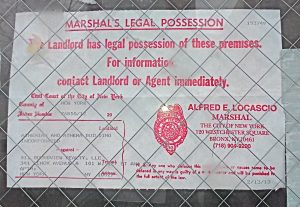 News outlets have reported that former gymnast Livvy Dunne’s application to purchase a NYC apartment once owned by Yankees legend Babe Ruth was rejected by the cooperative board. Although the news was disappointing to the young social media influencer, such a decision was mostly likely a prudent one and not entirely unexpected. This post will provide a legal analysis of cooperative board declinations.
News outlets have reported that former gymnast Livvy Dunne’s application to purchase a NYC apartment once owned by Yankees legend Babe Ruth was rejected by the cooperative board. Although the news was disappointing to the young social media influencer, such a decision was mostly likely a prudent one and not entirely unexpected. This post will provide a legal analysis of cooperative board declinations.
We have previously written about the cooperative board approval process. So long as the purchaser was not rejected due to illegal discriminatory reasons, a rejection is considered to be legally tenable. Further, the reasons for the declination need not be disclosed. Applicants are legally protected from discrimination if the reason that they are rejected is due to characteristics such as their race, religion, sexual orientation and the like.
Dunne’s proposed purchase was purportedly an all cash purchase, with no bank loan. Her board application would have included proof of funds and other financial details. Ironically enough, some boards prefer to approve a purchaser who is using a bank loan for the purchase, since the lender has professionally evaluated the creditworthiness of the proposed purchaser. Dunne’s livelihood as a social media influencer may have been seen as without substance and fleeting by the board. Should she “go out of style”, her income may become depleted and her ability to maintain financial obligations to the building may not be met in the future.
 New York Real Estate Lawyers Blog
New York Real Estate Lawyers Blog










